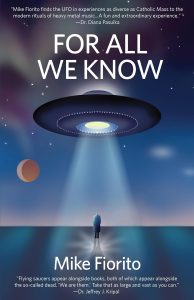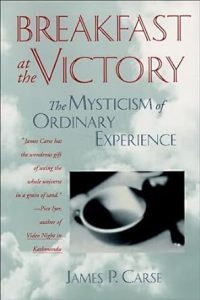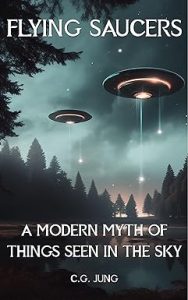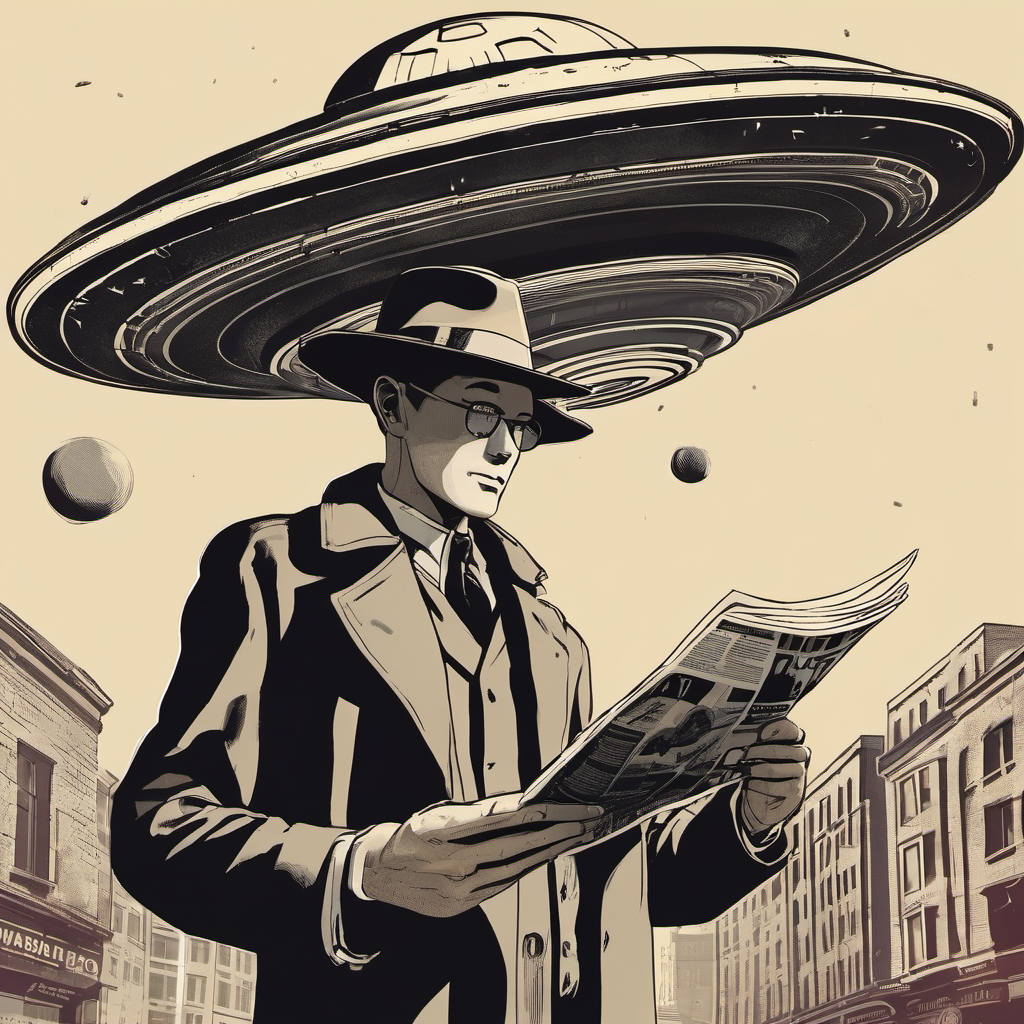 By KEN KORCZAK
By KEN KORCZAK
“The most we can do is dream the myth outward and give it a modern dress.” — Carl Gustav Jung
That quote by the great Swiss psychologist Carl Jung crashed into my mind as I was reading For All We Know: A UFO Manifesto. It’s Mike Fiorito’s latest book, which in many ways, defies any temptation we might have to park it within a specific genre.
This is not a “UFO book,” per se, and perhaps barely the fiction it’s presented as. Yet, it’s not a memoir nor a fully objective personal testament to one’s man’s lifetime interaction with what we today call “The Phenomenon.”
Let’s just call it a unique piece of literary art.
Verily, the slippery, amorphous, category-defying nature of this book is like a meta-analogy of the UFO topic itself! It reminds me of that Seinfeld episode where Kramer writes a coffee table book about coffee tables and the book itself is formed in the shape of a coffee table, complete with fold-out legs!
Marshall McLuhan said: “The medium is the message.” This book has that kind of vibe to illuminate the subconscious power of the narrative. Each chapter reads like a discrete package yet feels like a comprehensive whole thanks to the straight-line theme of ufology that transmigrates an arc from first page to last.
I could list several other thematic elements as well:
- Consciousness (what is it?)
- A search for meaning
- The role of psychedelics on perception and reality
- Shamanism
- Familial love, familial strife
- Gritty urban zeitgeist
- Mother Earth, Gaia and Nature
- Death and dying
- Living gracefully with uncertainty
- Progressive rock music
… and more.
That’s right! I’m telling you — this guy, Mike Fiorito — packs it all into this slim volume of just 130 pages! It’s like a neutron star. Astronomers tell us that neutron stars are so densely packed that just one teaspoon would weigh 10 million tons! Tonnage notwithstanding, each page of For All We Know offers a heady payload.
THE PSYCHEDELIC ELEMENT
Baked into the fabric of For All We Know is the psychedelic experience and how it informs a person’s conceptions and/or perceptions of reality. The protagonist tells of engaging in heavy use of marijuana, mushrooms and blotter acid from his teenage years and somewhat onward into adulthood.
This made me think of Breakfast at the Victory, a book by Dr. James P. Carse. He was a literature and history of religion professor at New York University and an academic legend. Carse transitioned away from his physical body in 2020 at age 88.

This book is not about psychedelics — but anyway and note that I’m paraphrasing — Carse in Breakfast at the Victory observed that, even when a person is extremely drunk or high, he or she remains able to think: “My God! I’m really drunk!” Or “Jeepers, I’m totally tripping!” Or “Holy Shit! I’m so baked!”
Carse’s point is that: No matter how intoxicated one might be, there is always an ever-present and untouchable “Sober I” that is coolly observing what’s happening. Carse suggests that this sober “I” is the Higher Self that remains aloof to make commentary on whatever wacky hijinks the Ego Self is up to.
This comes across (for me, anyway) as Fiorito describes his observations while tripping hard on LSD or imbibing shrooms. Wild and unhinged, maybe — and yet — we somehow come away with coherent images and implications imbued with overarching value. At the very least, we are invited (or dared) to think expansively and differently.
THE NEW UFOLOGY
Now I want to mention just one more thing before by review runs away from me and gets overlong.
In the release of this book, I see another example of an innovative and emergent subgenre to the UFO field of literature, although it’s not exactly new. Think of Carl Jung’s book about UFOs — Flying Saucers: A Modern Myth of Things Seen in the Sky — published in 1959.
 Jung may have been the first to publish a major UFO book that was not the typical nuts-and-bolts analysis or reports documenting sightings by people and their interactions with UFOs. Rather, it was an attempt to explain The Phenomenon in terms of overarching consciousness dynamics, mythology, religion, archetypes, psychology and mythopoetic resonances.
Jung may have been the first to publish a major UFO book that was not the typical nuts-and-bolts analysis or reports documenting sightings by people and their interactions with UFOs. Rather, it was an attempt to explain The Phenomenon in terms of overarching consciousness dynamics, mythology, religion, archetypes, psychology and mythopoetic resonances.
That was 65 years ago, but today we have a growing cadre of philosophers, writers, journalists and academics who are bringing forth “UFO books” that strive to venture beyond Jung’s seminal effort to create an in-depth epistemological and ontological framework for all this flying saucer business.
Some examples of the latest authors I’ve read trending in this vein are:
- Jeffery Kripal
- James D. Madden
- Diana Walsh Pasulka
- Matthew Roberts
- Peter Skafish
And some slightly earlier examples who came after Jung but ventured significantly into epistemological and ontological UFO theory:
- Jacques Vallee
- John Mack
- Keith Thompson
- Anthony Peake
- Whitley Streiber
- Greg Bishop
- Wayne Saalman
Both are my shortlists, of course. Other UFO authors are venturing into this space as well. But you get the point.
I’ve been a heavy consumer of UFO literature since 1967 when I was eight years old, so I’m fascinated and thrilled to witness a significant transcendence beyond the same old nut-and-bolts, science-and-evidence-based approach that has held sway for decades. There’s a growing recognition that UFOs may be foremost an evolution of consciousness issue rather than a subject limited to linear, materialistic and numbers-n-data-bound hard science.
Mike Fiorito’s For All We Know is the latest “Exhibit A” for that notion. He and others are taking Jung’s advice to “dream the myth outward in modern dress.”
NOTE: For more in-depth reviews of UFO books, please see: KEN-ON-MEDIUM
